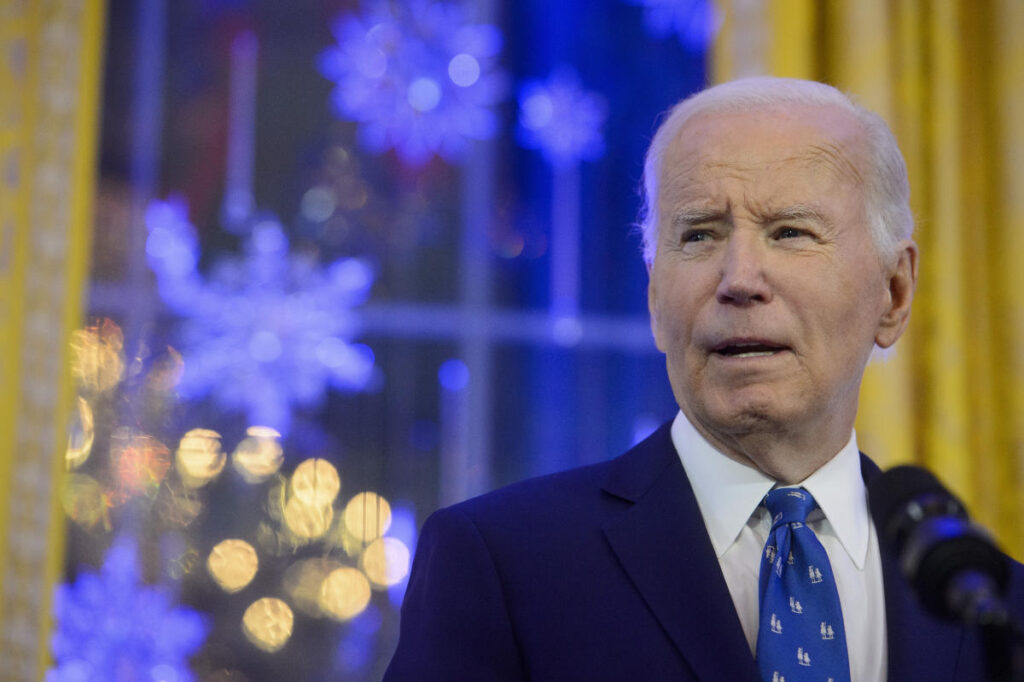In a recent interview, President Joe Biden expressed his support for a ban on congressional stock trading, a contentious issue that has lingered in Washington for several years. In remarks to Faiz Shakir, a political adviser for Senator Bernie Sanders, Biden stated unequivocally, “Nobody in the Congress should be able to make money in the stock market while they’re in the Congress.” The endorsement of such a ban reflects a growing concern about the potential conflicts of interest faced by lawmakers who trade stocks while participating in government decision-making. This interview, set to be published by A More Perfect Union—a pro-labor advocacy and journalism organization—comes as discussions around the integrity of Congress have intensified amid various scandals and accusations of illicit financial dealings.
Biden’s comments arrive at a pivotal moment, just one month before the end of his term, and while the overall impact of his statement remains uncertain, it adds fuel to an issue that has generated widespread bipartisan support yet remains unresolved in Congress. The concern over congressional stock trading has escalated, especially highlighted by instances where lawmakers engaged in stock transactions based on privileged information received during the pandemic. Such activities have prompted outrage and skepticism among constituents who view them as emblematic of a system that allows elected officials to profit from their insider knowledge at the expense of public trust.
The proposal to ban stock trading by members of Congress and their families currently boasts a significant number of sponsors from both parties but has yet to receive a formal vote. Despite being mandated to disclose stock transactions exceeding $1,000, many politicians often fail to meet deadlines for reporting, and some do not report their trades at all. This lack of transparency exacerbates the perception that lawmakers are operating with a level of accountability that does not extend to their financial dealings, further undermining public confidence in the integrity of government.
During the interview, Shakir praised Biden for refraining from engaging in stock trading during his lengthy tenure as a senator. Biden emphasized his decision to live within his salary as a public servant, contrasting it with the actions of some of his congressional peers. He articulated his discomfort with the idea of profiting from stock market activities while serving in Congress, stating, “I don’t know how you look your constituents in the eye and know, because the job they gave you, gave you an inside track to make more money. I think we should be changing the law.” His statements reflect a broader sentiment among citizens who desire lawmakers to prioritize their duties over personal financial gain.
Historically, Biden had not taken a definitive stance on the issue of stock trading by members of Congress. In previous instances, former press secretary Jen Psaki indicated that Biden preferred to leave the decision on financial regulations to congressional leadership. However, his recent comments may signal a shift in his administration’s approach and a recognition of the growing demands from constituents for greater ethical standards in government. The timing of this endorsement adds pressure on Congress to take decisive action, especially as the public continues to express frustration over perceived corruption within the political landscape.
As the debate around congressional stock trading continues, Biden’s endorsement for a ban may invigorate efforts to impose stricter rules governing lawmakers’ financial activities. The potential for new legislation could reshape the political financial landscape and enhance accountability among elected officials, rekindling public faith in the system. The bipartisan nature of the sponsorship for such proposals suggests that there is considerable momentum behind reform measures. Nevertheless, translating sentiment into legislative action will require concerted political will—a task that remains challenging in the current polarized environment of U.S. politics.

